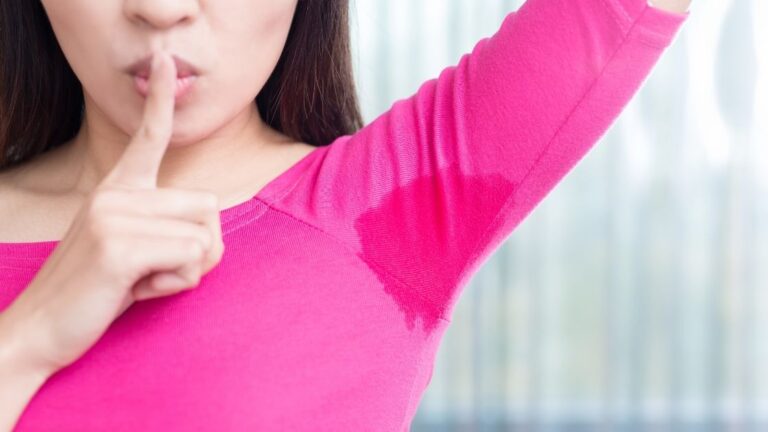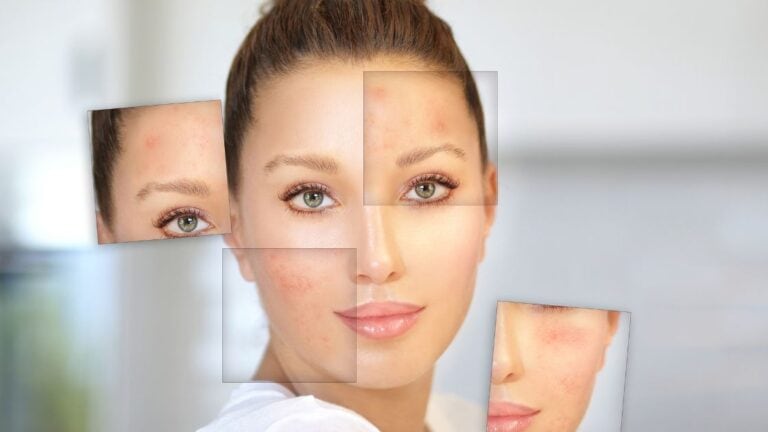Different hair types have unique beauty and character. Curly, straight, exemplary, or thick, each type requires its care. But one thing is sure: healthy hair is gorgeous hair. And keeping hair healthy begins with proper showering habits. Washing hair too often or not enough can cause damage, completing it crucial to find the right balance.
Overwashing hair can strip it of natural oils, leading to dryness and breakage. So, not washing hair enough can cause a buildup of oils and dirt, resulting in a dull and greasy appearance.
To find the ideal washing frequency, consider factors such as hair type, scalp condition, and lifestyle. Generally, washing hair every two to three days is a good starting point, but it may vary for each person.
What You Need to Consider
When it comes to hair care, there are a few things you need to consider to keep your locks looking healthy and shiny.
Firstly, you must choose the right shampoo and conditioner for your hair type. If you have dry hair, you should look for a moisturizing formula, while oily hair types benefit from a clarifying shampoo.
Secondly, you must be mindful of how often you wash your hair. Washing your hair repeatedly can strip it of natural oils, leading to dryness and damage. On the other hand, washing it infrequently can result in a buildup of oil and dirt.
Thirdly, it’s essential to protect your hair from heat damage. If you frequently use heat styling tools like hair dryers, straighteners, or curling irons, consider using a heat protectant spray or serum to minimize damage.
Lastly, regular trimming can help keep split ends at bay and promote healthy hair growth. Aim to get a trim every six to eight weeks to keep your hair looking its best.
By taking these simple steps, you can ensure that your hair stays healthy, strong, and beautiful.
Your Hair Type and Texture
Curly Hair – Curly hair can be challenging to maintain, but with the proper care, those tight corkscrews or beachy ringlets can look stunning.
Remember that curly hair doesn’t need to be washed as often as straight hair, as the natural oils help activate the curls.
Instead, consider co-washing using a conditioner instead of shampoo to cleanse the hair and keep it moisturized.
Straight Hair – Straight hair is naturally gorgeous, but it can become greasy with the regular use of styling products or from the buildup of natural oils.
It may require more frequent washing than other hair types, but be mindful not to over-wash, as this can strip the hair of its natural oils, leading to dryness and damage.
Thick Hair – Thick hair can be more effort to care for, but the results are worth it. It’s essential to wash it regularly to keep it clean and healthy but rinse with cold water to help seal the hair cuticle and add shine.
A deep conditioning treatment once a week can also help keep thick hair looking its best.
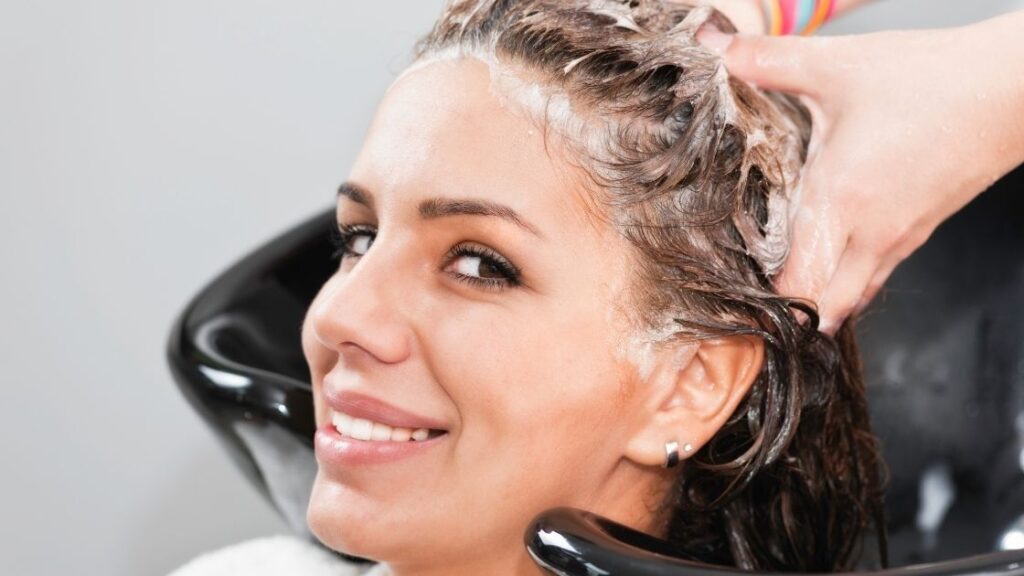
Fine Hair – Fine hair can be delicate and prone to breakage, but keeping the scalp healthy is the key to making it look its best. Washing fine hair too frequently can strip away the natural oils, so it’s best only to wash it when necessary to lock in moisture. Use a gentle shampoo and conditioner that won’t weigh down the hair.
Color Treated Hair – Color-treated hair requires special care to keep it looking vibrant and healthy. Colored hair is more prone to dryness, so avoiding over-washing is essential, which can strip away the color and moisture.
Look for products specifically formulated for color-treated hair and regularly use a deep conditioning treatment to keep it looking its best.
Natural Hair – Natural hair comes in various textures and curl patterns, and it’s essential to understand what works best for your hair type.
Natural hair doesn’t need to be washed as frequently as straight hair, as the natural oils help moisturize it.
It’s essential to balance keeping the hair clean and healthy and not over-washing, which can lead to dryness and breakage. Depending on your hair’s needs, washing every 7-10 days may be sufficient.
Use a gentle shampoo and conditioner free of sulfates and harsh chemicals to keep your natural hair looking its best.
How Often You Sweat
Regardless of your hair type and texture, one factor all kinds need to take into consideration is how often you sweat.
While sweat doesn’t smell, sweat can dry, leaving particles and residue that require cleaning. If you work out frequently, always try to keep your hair up in a bun or ponytail.
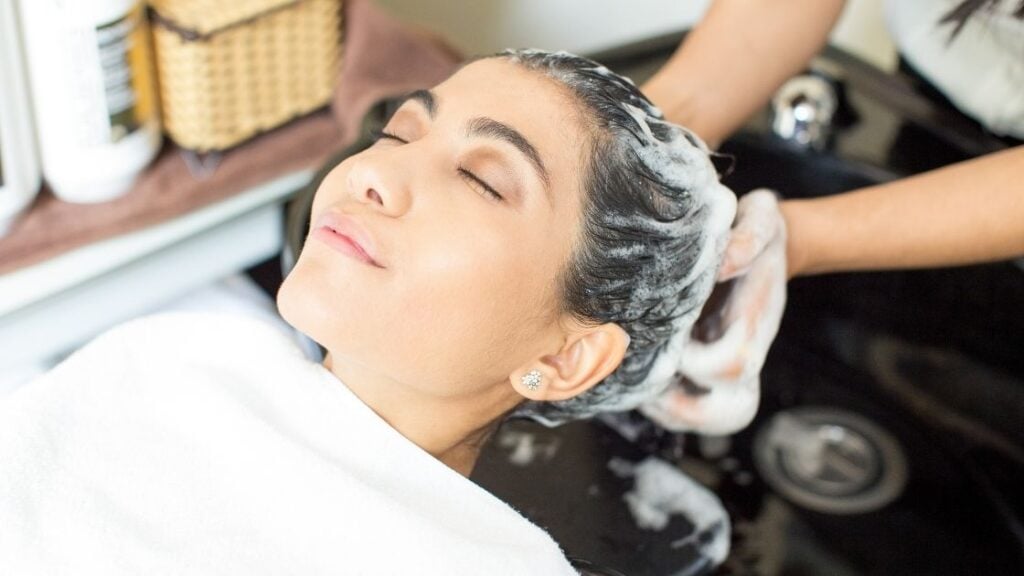
Remember, after exercise, you don’t need to rewash your hair with shampoo, conditioner, and the whole shebang.
Try using dry shampoo or just simply rinsing your hair with cold water.
Use of Styling Products
The more styling product you use, the more buildup you’ll get in your hair, which can give an appearance of greasy hair.
Use as little hair product as possible and only apply it to the end of the hair strand to avoid excess oil buildup.
Rather than hair washing, a rinse with warm or hot water may be enough to remove the styling product without shampoo.
Your Age
Did you know your age also affects how often you wash your hair? Like many other body parts, the hair follicle changes as we age!
As we age, the sebaceous gland located in the hair cuticle produces less sebum than when you were younger!
As you age, your hair care needs change, and you must wash your hair less often than when you were younger.
Signs It’s Time to Shampoo
Okay, so how do I know when it’s time to shampoo? One of the most evident signs is oily hair. An oily scalp may still have clean hair and require a dry shampoo treatment.
On the other hand, greasy or oily hair is a sure sign that it’s time to crack out the clarifying shampoo.
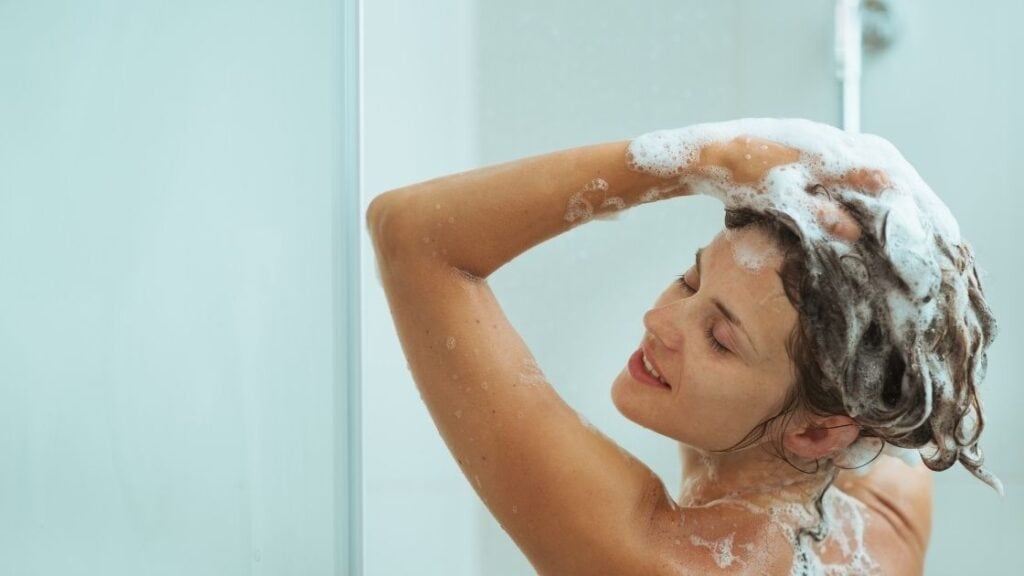
Now the exact time depends on many of the variables mentioned above. Someone with fine, naturally oily hair may need to wash their hair every 4- 5 days, whereas those with thick, coarse hair can last as long as ten days without a hair wash.
Everyone has a different head of hair which requires different needs. The trick, therefore, is to get to know your locks.
Most people’s problems tend to stem from thinking they already know how to wash hair, specifically how often they need to be doing so.
They continue washing it every second day, just because that’s the way they’ve always done it!
There could be nothing more terrible for your scalp than too-frequent hair washing. Let’s check out why.
Signs You’re Over-Washing
So are you among the many women damaging their healthy hair by too much washing? If you’ve noticed any of these signs it might be time to put down the shampoo!
Dry Hair
Several factors, including genetics, environmental factors, and excessive use of heat-styling tools, can cause dry hair. Dry hair lacks moisture and can be brittle and prone to breakage.
Want to cure dryness? Using a moisturizing shampoo and conditioner designed for dry or damaged hair is essential. Look for products that contain natural oils like coconut oil or argan oil, which can help hydrate and nourish the hair.
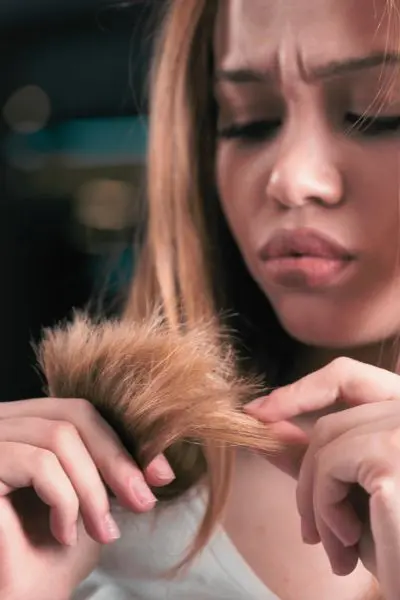
Using moisturizing products, limiting heat styling tools is important, as excessive heat can further dry out the hair. If you must use heat styling tools, use a heat protectant spray and limit the frequency and intensity of use.
Regular deep conditioning treatments can also help restore moisture and improve the overall health of dry hair. Consider using a hair mask or oil treatment once a week to help hydrate and nourish your hair.
Be gentle with your hair when brushing or styling to avoid causing further damage. Use a wide-toothed comb or brush designed explicitly for detangling wet hair to prevent pulling or tugging on the hair, which can lead to breakage.
Frizzy Hair
Curly hair is a common concern, and various factors, including genetics, humidity, and damage from heat styling, can cause it. Frizz occurs when the hair cuticle becomes lifted, allowing moisture to enter and cause the hair to expand.
Using a smoothing shampoo and conditioner specifically designed to tame frizz and provide hydration to the hair is essential. Look for products that contain natural oils like argan oil or shea butter, which can help nourish and tame frizz.
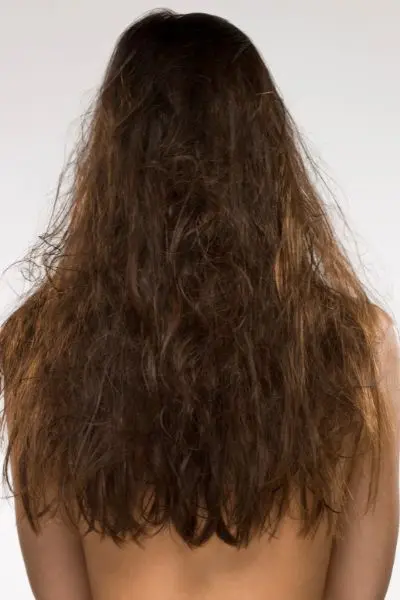
Regular deep conditioning treatments can also help reduce frizz and improve the overall health of your hair. Consider using a hair mask or oil treatment once a week to help hydrate and nourish your hair.
Avoid using heat styling tools as much as possible when styling your hair, as excessive heat can contribute to frizz. If you must use heat styling tools, use a heat protectant spray and limit the frequency and intensity of use.
Using a microfiber towel or an old t-shirt to dry your hair can also help reduce frizz, as these materials are gentler and can help absorb excess moisture without causing damage.
Hair Loss
Hair loss due to overwashing is a common problem that many people face. Overwashing can strip the scalp of its natural oils, leading to dryness and irritation. When the scalp is dry and irritated, hair follicles may become damaged, resulting in hair loss.
It’s essential to reduce the frequency of washing your hair. Try to wash your hair no more than every other day or less frequently. When you wash your hair, use a gentle shampoo free from harsh chemicals and sulfates.
It’s also important to avoid using hot water when washing your hair, as this can further dry out the scalp. Instead, use lukewarm water and rinse thoroughly to remove all shampoo from your hair.
Oily Hair
It might sound counterintuitive, but it’s true, too much washing can strip your hair from all its moisture and natural oils.
To fight against this, your hair follicle sometimes just ends up working in overdrive – producing more and more sebum to compensate.
Doing so can lead to the appearance of greasy hair.
How Can You Safely Extend Time Between Washes?
The question now is how to wash hair to keep your locks healthy and gorgeous and maintain ultimate hair health.
- We recommend avoiding shampooing your hair for as long as possible. If you are used to shampooing every second day, try every third or fourth and see how your hair reacts. Chances are it won’t end up as greasy as you fear.
- Keep your hair tied back while doing sports and exercise.
- Rinse, rinse, rinse! Rather than a full hair wash, try rinsing your hair with clean water.
- Dry shampoo is a quick way to deal with an oily scalp without touching the rest of your hair.
- Avoid the use of hair products wherever possible.
- Always rinse your hair with cold water at the end of your hair wash. Doing so tightens the proteins in the hair strand, keeping your hair healthy, shiny, and strong.
Conclusion
Getting beautiful, healthy hair isn’t as difficult as you might think – sometimes all your hair needs is to be left alone! Try giving your hair a couple more days between hair washes and see how your hair shines, naturally.


